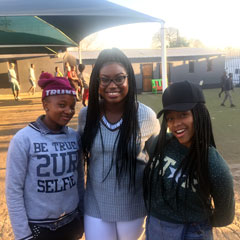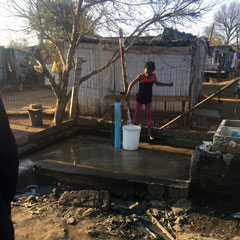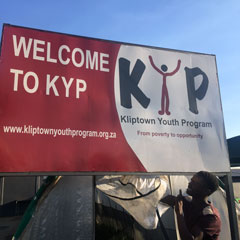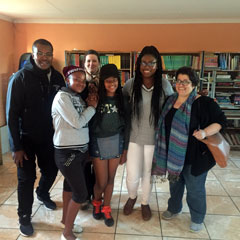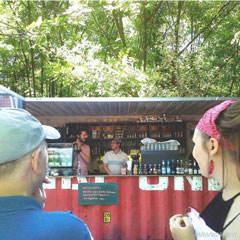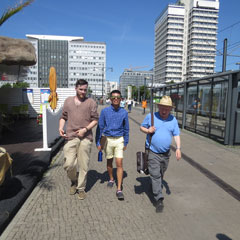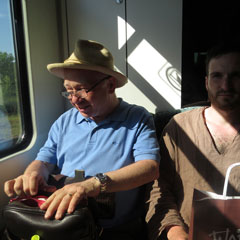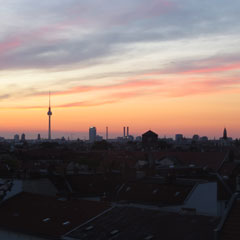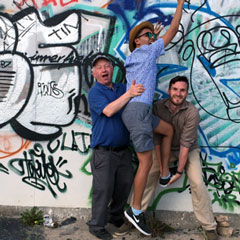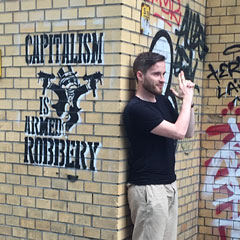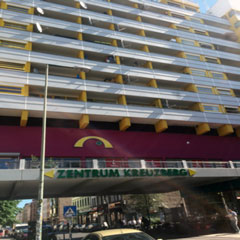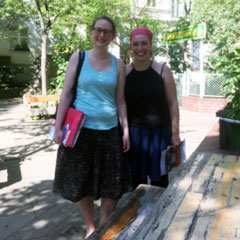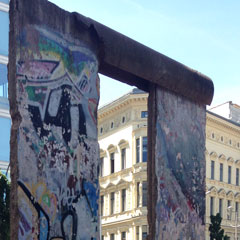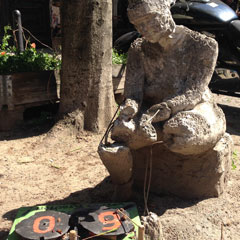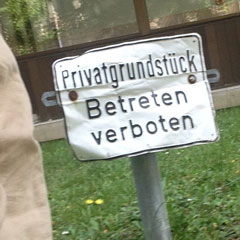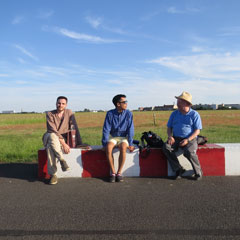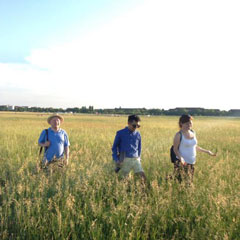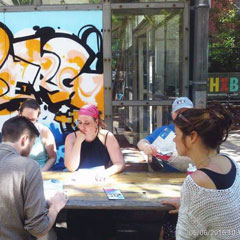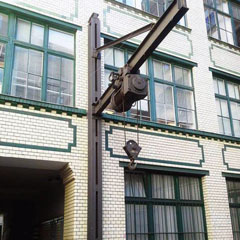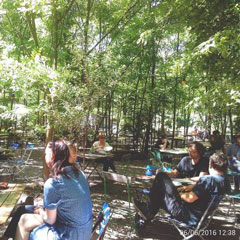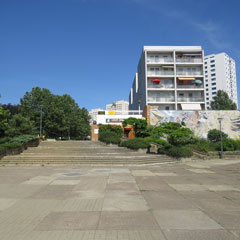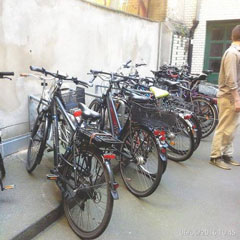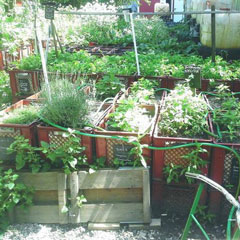Urban Studies Program
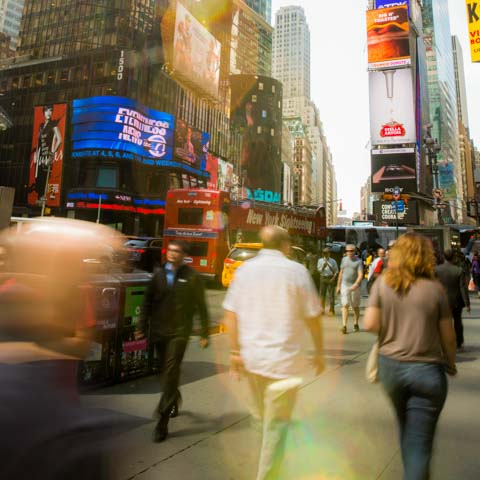
Designed as an interdisciplinary program, Urban Studies offers a broad introduction to the city and the urban environment.
Students combine course work and urban issues with hands-on experience in New York City. A dedicated faculty offer courses ranging from urban politics and community, architecture and the built environment, urban history, immigration and class relations, to literary representations of urban space.
Learn More About:
2025 Trinity Fellowships
Congratulations Isaac Forson and Kyle Zingler!
Recipients of the 2025 Trinity Financial Fellowship
The Trinity Financial Fellowship supports the academic research of outstanding Urban Studies undergraduate majors at Fordham University as they complete their senior internship and thesis.
Participants in the Trinity Financial Fellowship produce senior theses related to social and economic concerns, community and cultural initiatives, the built environment and environmental justice.
Current Fellow Insights
Isaac Forson
“My name is Isaac Forson and I am a senior at FCRH studying Urban Studies and Political Science. I am from Brooklyn, New York. In my senior thesis, I will explore the role in which political endorsements from musical artists play a role in their followers' political perspectives, with a specific focus around local and federal election cycles.”
Kyle Zingler
“For my senior thesis, I am examining mental illness among the unhoused in New York City through a mixed methods approach that involves qualitative and quantitative data collection and analysis. For qualitative research, I’ll be interviewing social service providers, formerly unhoused individuals, clinicians and city employees in key agencies that influence policy and/or manage programs that support the unhoused. In regard to quantitative research, I’ll be running multivariate analyses utilizing the computer programming language R, to identify associations between variables such as socioeconomic status, race (among others) on housing status and mental health.”
Vojislava Cordes at Columbia University
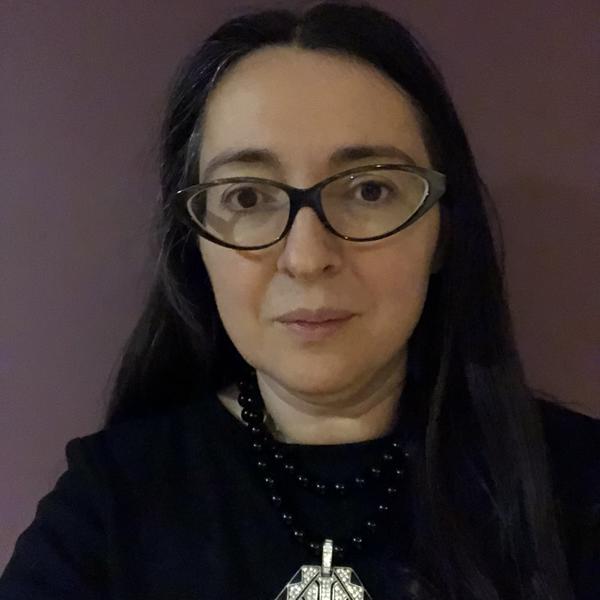
Best Wishes to Prof. Cordes who resumes her role in Comparative Urban Policy at Columbia University SIPA.
Vojislava Filipcevic Cordes holds a Ph.D. in Urban Planning, with concentrations in Sociology and Political Science, from Columbia University. She was a Paul E. Raether Postdoctoral Fellow in Urban and Global Studies at Trinity College and a Research Associate to the late Dr. Benjamin Barber at Urban Consortium, Fordham University. She is the author of New York in Cinematic Imagination: The Agitated City (Routledge: London and New York, July 2020) and is currently completing a forthcoming participant-observation and theoretical research study on The Politics of Sanctuary.
New York Universities, It’s Time to Tear Down That Wall
By Brian Martindale, Fordham Urban Studies
from Gotham Gazette:
“New York universities are walling people out. Major private institutions across the city are surrounded by gates, but not because they are in the most dangerous neighborhoods. Rather, it appears that largely white student bodies are being walled off from their surrounding communities because of unfounded fear of racial others.
Columbia University, in a neighborhood adjacent to Central Harlem, is blockaded on every side with a security force keeping watch on all who enter its narrow gates. St. John’s University, in Queens’ Hillcrest neighborhood, is peppered with turnstiles, gated parking lots, and signs marking it as “Private Property.” Fordham University’s Rose Hill campus in the Bronx is similarly locked-down, separated from the surrounding community by wrought iron and chain link fences, at places with barbed wire and stone walls. The only way in, with few exceptions, is by scanning a school ID past a staffed security booth or full-height turnstiles.
Standing in contrast is New York University, located in Manhattan’s Greenwich Village. NYU is a decidedly urban campus, built into the fabric of the city, with the public Washington Square Park serving as its primary quad.
What makes NYU different? Gut instinct might suggest NYU is in a safer neighborhood so it doesn’t need a gate. But it turns out the universities that believe they need to wall out crime are actually in safer communities.”
Read the full article by Brian Martindale at Gotham Gazette.
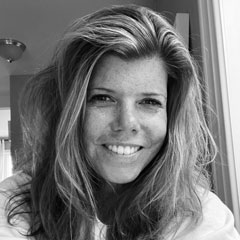
Annika Hinze Appointed as New IPSR Editor
from ipsa.org:
Annika Marlen Hinze, Associate Professor of Political Science at Fordham University, has been appointed as co-editor of the International Political Science Review (IPSR).
Dr. Hinze's research and teaching focus on urban politics, immigration policy, democratic theory, and qualitative and mixed methods research. Hinze is also interested in housing, transportation, and sustainability policy in cities. Her first book, Turkish Berlin: Integration Policy and Urban Space (University of Minnesota Press, 2013), compares integration policy and lived integration of second-generation Turk-German women in two Berlin neighborhoods. She is also the co-author (with Dennis R. Judd) of the 10th edition of City Politics: The Political Economy of Urban America (Routledge 2018), as well as the 11th edition, newly entitled City Politics: Cities and Suburbs in 21st Century America (Routledge 2022), and co-editor (with James M. Smith) of the forthcoming 8th edition of American Urban Politics in a Global Age (Routledge, forthcoming). Hinze has published articles in the Journal of Ethnic and Migration Studies, PS: Political Science & Politics, Studies in Ethnicity and Nationalism, and co-edited a special issue on “North American Urban Politics” in the journal Urban Research and Practice (2013). Her current research focuses on gender equality in academia, the lasting impact of the COVID-19 pandemic on cities in policy framing and practice, sustainability policy and planning in American cities, urban neighborhood change, and democratic institutions. Dr. Hinze has done field research in Canada, Germany, Turkey, and the United States and is an Associated Researcher at the Center for Metropolitan Studies at TU Berlin.
Read the announcement at ipsa.org.
City Politics: Cities and Suburbs in 21st Century America
annika m. hinze | dennis r. judd
City Politics, Eleventh Edition
9781032006352
Routledge
July 12, 2022
from the publisher:
City Politics has received praise for the clarity of its writing, careful research, and distinctive theme – that urban politics in the United States has evolved as a dynamic interaction between governmental power, private actors, and a politics of identity.
The book’s enduring appeal lies in its persuasive explanation, careful attention to historical detail, and accessible and elegant way of teaching the complexity and breadth of urban and regional politics which unfold at the intersection of spatial, cultural, economic, and policy dynamics. This 11th edition has been thoroughly updated while retaining the popular structure of past editions.
Four Dream Conversations in Urban History
from globalurbanhistory.org:
The Covid-19 pandemic has changed academic conversation, likely forever. This last June, several dozen GUHP members from across the world gathered to envision new ways to fulfill the Project's mission as we go forward. Instead of thinking about location or formats of new events, we decided that online some form of hybrid events were actually to GUHP's advantage, since they allowed relatively simple and chap ways to bring the membership together over long distances.
What are our "Dream Conversations"? Read more at globalurbanhistory.org.
The Promise and Peril of Artificial Intelligence

from fordham news:
The concept of artificial intelligence has been with us since 1955, when a group of researchers first proposed a study of “the simulation of human intelligence processes by machines.” At the same time, it seems like not a day goes by without news about some development, making it feel very futuristic.
It’s also the purview of professors from a variety of fields at Fordham, such as Damian Lyons, Ph.D., a professor of computer science, R.P. Raghupathi Ph.D., a professor of information, technology and operations at Gabelli School of Business, and Lauri Goldkind, Ph.D., a professor at the Graduate School of Social Service.
Listen to the podcast by Fordham Urban Studies alumnus Patrick Verel:
Read the full transcript at Fordham News.
STATEMENT OF SOLIDARITY AND COMMITMENT TO JUSTICE
Fordham’s Urban Studies Program stands in solidarity with the Black Lives Matter movement and all the protesters demanding racial justice and an end to police brutality towards minorities across the country. We firmly believe that in a society, in which all are not free from oppression and injustice, no one is truly free. Therefore, we must all recognize our responsibility to work towards pointing out systemic inequality and racism throughout our country, and our institutions, as a first step toward ending and overcoming it.
“Until the killing of black men, black mothers’ sons, becomes as important to the rest of the country as the killing of a white mother’s son, we who believe in freedom cannot rest.” (Ella’s Song, Bernice Johnson Reagon)
We strongly believe in the importance of confronting the past (and the present) for building a better and more equitable future, and we are committed to confronting existing racial injustice in our teaching and research.
A New York Legislator's Take on the Protests
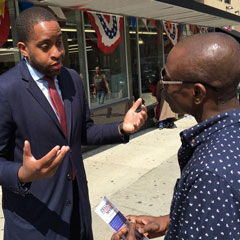
from wync | the brian lehrer show:
Fordham Urban Studies alumnus Zellnor Myrie, New York State Senator (D-20), talks about his experience getting pepper sprayed at a protest last weekend, and discusses laws he hopes to pass that would help change the justice system and reform policing.
Listen on wync.org The Brian Lehrer Show.
Prof. Greer talks Politics and Protest
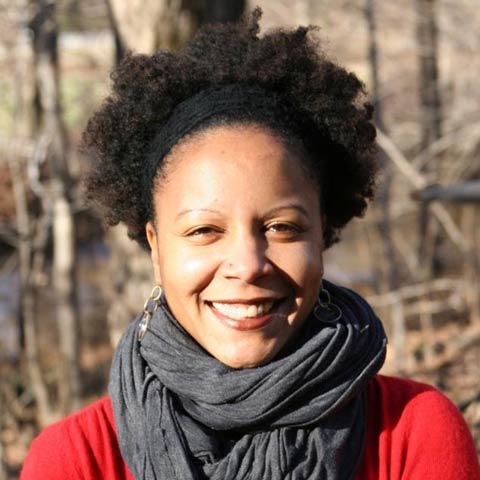
from wync | the brian lehrer show:
Dr. Jason Johnson, professor at Morgan State University, political contributor at MSNBC, contributor to The Grio and Sirius XM, and Christina Greer, political science professor at Fordham University, host of the podcast FAQNYC, politics editor at The Grio and the host of The Aftermath on OZY , talk about the uprisings happening across the country, and the political ramifications.
Listen on wync.org The Brian Lehrer Show.
Built Heritage special issue on Shanghai
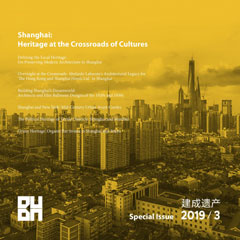
A new special issue of Built Heritage, “Shanghai: Heritage at the Crossroads of Culture,” is edited by Fordham Professor of History Rosemary Wakeman. The journal is published by the College of Architecture and Urban Planning at Tongji University in Shanghai.
from wakeman's introduction:
Shanghai is among the most dynamic global cities of both the 20th and 21st centuries. The city is China’s gateway to the world and its aspirations for the future. With more than 24 million people, 40 percent of whom are migrants, it is a global crossroads and one of the most multicultural cities in the world. It has more skyscrapers than New York and a public transport system that overtakes most global cities. Shanghai is a trading city, an entrepot of commodities. It exports electronic information products, automobiles, petrochemicals, fine steel, equipment, and biomedicine. It has the highest GDP of any city in China’s mainland and has become one of the leading financial sectors in East Asia, with major Western banks flocking to its new financial centre. With well over 500 multinational companies, the city attracts more foreign investment flows than most developing countries. Along with them has come a highly-skilled workforce from all over the world. Shanghai’s urban middle-class has fuelled China’s consumer revolution and a property boom. Sleek skyscrapers and glamorous malls, its brilliant skyline, dominate the global image of Shanghai and beckon tourists to its shores.
• Rosemary Wakeman, “Shanghai and New York: Mid-Century Urban Avant-Gardes”
Read more at Built Heritage.
Mapping Conference Tackles Justice Issues from a Geographic Perspective

from fordham news:
In a three-day symposium titled “Mapping (In)Justice,” dozens of scholars came to Fordham’s Lincoln Center campus from Nov. 7 to Nov. 9 to examine how digital mapping is being used by academics as a methodology to study justice and injustice, particularly when researching underserved communities.
Gregory Donovan, Ph.D., assistant professor in the Department of Communication and Media Studies and co-founder of the Fordham Digital Scholarship Consortium, organized the conference with department chair Jacqueline Reich, Ph.D.
“Spatial media have politics, these are not neutral things,” said Donovan, who teaches a course of the same name as the conference for the Masters in Public Media. “We need to look at how our subjects are using digital mapping in their own lives and not just use this technology to study them from afar, like a scientist with a clipboard.”
Read the full article by Tom Stoelker at Fordham News.
from m(i)j project gallery:
- A Fine and Fertile Country: How America Mapped its Meals, Lena Denis & Danielle Brown, Harvard Map Collection.
- Counter-Mapping Evictions in NYC, Manon Vergerio, Ariana Allensworth & Ciera Dudley, Anti-Eviction Mapping Project.
- Durham Health Indicators Project, Tim Stallmann, Research Action Design, & John Killee, DataWorks NC.
- Participatory Mapping to Reduce Urban Risk in Lima, Rita Lambert, The Bartlett Development Planning Unit, University College London.
- Recalibrating Queens: Re(sident)-centering the development debate in LIC, Kristen Hackett, The Graduate Center, CUNY.
- Screening Surveillance: Mapping, Monitoring, and Future-Ing Big Data Surveillance, sava saheli singh, University of Ottawa.
- Siege of Antioch Project, W. Tanner Smoot & Douglass Hamilton, Fordham University, Center for Medieval Studies.
- ToxiCity: Mapping Pollution in North Brooklyn, Jesse Braden, Spatial Analysis and Visualization Initiative, & Anthony Buissereth, North Brooklyn Neighbors.
- unARchived, Abraham Avnisan, Kent State University, Christian Anderson, University of Washington Bothell, & Amir Sheikh, Independent Scholar.
Congratulations NYS Sen. Zellnor Myrie, District 20
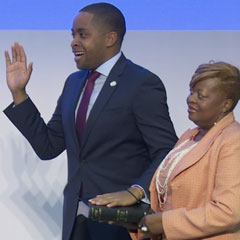
from bklyner:
Urban Studies alumnus Zellnor Myrie celebrated his inauguration in East Flatbush on Monday, February 11, 2019, before a host of electeds and constituents where everyone spoke to a new senatorial district 20.
After graduating from Brooklyn Technical High School, the 32-year-old attended Fordham University and then Cornell Law School. He was joined on stage by his mother, Marcelina Cummings, who was a staunch supporter of the lawmaker’s senatorial bid. Cummings came to the states from Costa Rica and worked as a factory worker initially.
“We must follow the command to be courageous,” said Myrie. “The problems that are facing our communities cannot be solved with the same solutions of yesterday. They require us to be courageous in our aspirations.”
“We will be bold in our actions and we will be bold on how we attack them,” said Myrie on how he’s looking to tackle the issues plaguing the community, including housing and homelessness.”
“Think about what he’s already accomplished,” said NYC Comptroller Scott Stringer who was also in attendance. “Early voting, early voting—the consolidation of state and local primaries — I’ll give you a fact as comptroller— that’s a savings of $50 million that can go to education and healthcare and housing. That’s what he did”.
Read the full story at Bklyner.
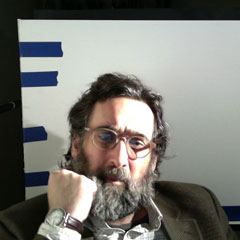
Mark Street Defends the Art of Street Photography in Filmmaker Magazine
Mark Street, writer, filmmaker, and Assistant Professor of Film in the Visual Arts Program at Fordham, defends his craft in an article for Filmmaker Magazine: "In Defense of Street Photography in an iPhone Age."
“Oddly, as filming in one medium (the cellphone) has become ubiquitous, people seem to fear the semi-professional more and more. A professional film shoot ascribes to standards — releases are signed, tacit agreements are made, those filmed understand the scope of the project. As someone who works alone (without a crew that creates a kind of picture a passerby might be able to understand) I often find myself at pains to explain myself.”
Read the full article at Filmmaker Magazine
-
- Designing the City, Sustainably: Sustainability and Climate Change Resiliency in New York City by Cosima Balletti-Thomas
- Making Sustainability Accessible: Green Affordable Housing Development in the South Bronx by Natalie A. Bartfay
- Raising an Indoor Generation: Outdoor Environmental Education Impact on Adolescent Development by Daisy Elizabeth Bewley
- The Fault with Asphalt: Towards Absorbent Urban Design in New York City by Scott Paul Redfern Brown
- Preparing for Climate Change in New York City: Geographic Information Systems as a Valuable Tool for Natural Hazard Management by Amy Carrillo
- Problems and Possibilities of Private Equity and Environmental Sustainability by Katherine N. Elliot
- The University Greening Movement: Is Carbon Neutrality Enough to Avert a Climate Crisis? by Sean R. Finlay
- Food Choice Reform: Shifting American Culture Toward Sustainable Diets by Colleen McCarthy
- The Breath of the Bronx: Limited Greenspace and Poor Respiratory Health by Eric Patrick McLoughney
- Nature as Privilege: How Environmental Racism Changes the Access to Fresh Air and the Effects on New York City’s Communities by Sarah C. Morrison
- Breaking Ground on New Agricultural Models: Industrial Agriculture and the Local Food Movement by Elizabeth Nealon
- Ecotourism Development in Indigenous Communities: A Mapuche Case Study by Shaelynn Taylor Nuckel
- Fighting Food Insecurity for NYC Children and Youth: Urban Agriculture and Food Justice by Devin C. O'Mara
- Documentaries Making a Difference: Communication Effects of Environmental Film and Television by Lindsey A. Register
- Ethical Implications of Population Growth and Reduction by Tiana Sepahpour
- Wasteful Talent: Eliminating Entertainment Waste and Enhancing Experience by Eric Alexandra Lucia Sottile
- Green Politics: The Impact of Grassroots Organizations on Environmental Political Movement by Eric Andrew Stolar
- This Land is My Land: The Complex Land Ethics at the Heart of the Occupation of Malheur National Wildlife Refuge by Fi V. Whalen
-
- Inch by Inch: Expanding the Community Garden Programs in New York City by Michael Bailey
- A Historical, Political and Social Look into the Problem of Floatable Pollution in NYC's Bronx River by Zoe L. Bellapigna
- Subsidizing Climate Change: How the Agricultural Business is Harming Our Planet by Caroline Berejka
- Radical Social Ecology as Deep Pragmatism: A Call to the Abolition of Systemic Dissonance and the Minimization of Entropic Chaos by Arielle Brender
- A Green Opportunity: Why American Conservatives Will Benefit By Fighting Climate Change by Byrne W. Cronin
- Food Apocalypse: The Future of the American Diet by Kylie Farrell
- A Conservative Concern: Conservative Ideology, The Environmental Crisis, and Why They Can Be A Perfect Pair by Alexandra Ferreira
- Building a Bridge Between Philanthropy and Profit: The History, Economics, and Politics of Environmental Impact in a Commerce Society by Yekaterina Goncharova
- Apicentrism in City Parks: Cultivating Honey Bee Prosperity in the Face of Colony Collapse Disorder by John Hughes
- The Impacts of Green Spaces on Crime in New York City by Matthew Edward Iannone Jr.
- Sustainable Interiors: Green Design Methods and its Influence on Ecopsychology by Tillie M. O'Reilly
- Pacific in Peril: Micronesia’s Food Security, Development, and Health under A Changing Climate by Yota Pacifico Oue
- Turbines Spinning Towards a Better Future: The Expansion of Offshore Wind Farms in the United States by Noah J. Stiles
- The Planet on Our Plates: The History, Economics, and Ethics of an Unsustainable Globalized Food System by Erin Wattley
- Farming the Bronx: The Potential for Controlled-Environment Agriculture to Address Environmental Degradation and Urban Social Issues by Reyna Wang
- Burmese Refugee Health: The Value of Plant-Based Medicine by Natalie Wodniak
-
- Assessing the Effects of Ecotourism on the Developing World: A Galapagos Case Study by Ife Adelona
- The Disappearing Wetland Act: Climate Change, Development, and Protection by Jessica P. Doughty
- Greenways In America: The Ecosystem Services of Urban Greenways and their Neighborhood Benefits by Bryan E. Kiel
- Housing the Homeless: A Framework for Sustainable, Affordable Housing by Brianna Providence
- Urban Parks for All: Reclaiming Public Green Space in New York City by Emily Putnam
- Fracking in Pennsylvania: History, Geopolitics, and Public Health by Kathryn A. Susko
-
- Do or Die: Environmental History, Environmental Politics and Environmental Economics and Their Implications for Mitigating the Effects of Climate Change by Christopher Cannon
- Urban Parks: A Study on Park Inequity and EcoGentrification in New York City by Bernadette Corbett
- A Case for Career and Technical Education (CTE) in Reducing High School Dropout Rates and Youth Unemployment Among Urban Youth by Sharnell Creary
- Mindless Meat: An Exploration of Meat’s Role in Environmental Degradation and World Hunger by Camille A. Danielich
- Rising Temperatures, Rising Stakes: The Role of International Policy Negotiations in the Climate Crisis by Sarah M. Davis
- Improving Transit in Southeast Queens: Upgrading Public Transportation in One of New York City’s Most Isolated Areas by Thomas Dorante
- The Solar Power Difference: How Solar Energy Can Boost Economies and Nicaragua's Rural Communities by Matthew R. Feuer
- Gentrification and Urban Displacement Surrounding Fordham University’s Bronx Community by Ryan Fleites
- Infiltrating Green into the Urban Machine: Creating Equity Through Zero-Acreage Farms in NYC by Hania Hribal-Kornilowicz
- Parks and W[rec]k: Ecosystem Services of Urban Parks by Serena Iacoviello
- Sustainable Development: Challenge, Policy, Solution by Karl W. Knotoff
- Giving Trees: Protecting our Urban Forest by Catherine C. LaPerche
- Climate and Crisis: Environmental Degradation and Humanitarian Disaster in Darfur by Talia Macauley
- New York City Underwater: Climate Change Mitigation and Adaptation by Anna Marshall
- Why Support Donald Trump by Morgan Mungerson
- Wave and Tidal Energy in New York: Sustainable Hydroelectricity for the Grid by Lucas Basil Romanowsky
- Heroin Devastates Hen Hud: A Case Study by Mikela Ryan
- Case Study: Bronx River Alliance Successful Strategies of Urban Non-Profit Environmental Organizations by Danielle Rose Shtab
- East Harlem: An Inquiry into Development by Madeleine Sims
- Feeding America's Growing Cities: The Role of Urban Agriculture in the Future of Food Distribution And Accessibility by Leigh Anne Statuto
- Teacher Voice And The Charter School Experience by Anthoula Vasiliou
- Silent Summer: The EPA Spill & Neglected Navajos - A Review of Environmental Tragedies in Navajo Nation & Their Effect on Diné Life by Jillian Verzino
- Campaigning in 140 Characters (or Less): How Twitter Changed Running for President by Joseph Vitale
- The Gowanus Canal: Delving into the Murky and Mysterious waters Of Brooklyn’s Toxic Canal by Victoria L. Von Ancken
- A Wasteful Disposition: How A Consumerist Society Can Slowly Become Zero-Waste by Paige G. Werman
- Solar Panels: Lighting our Future Path by Charles M. Woessner
- Suzhou in History: City Layout and Urban Culture by Zhiyi Zhou
-
- Nature Deficit Disorder and the Need for Environmental Education by Vanessa J. Dwyre
- Greening a Drug-Addicted Economy: Can Puerto Rico Ease Away from the Toxic Pharmaceutical Industry to a Sustainably Diverse Economy? by Natalie Galarza
- Trouble in Paradise: How the California Drought is Affecting Vineyards and the Wine Industry by Sarah Gonsier
- The Interstate Highway System and Environmental Justice: Disproportionate Environmental Impacts on Low Income and Minority Communities by Dylan T. Katz
- Home Gardens: A Key to a Sustainable Future by Keara C. Galvin
- Hydroponic Farming: An Opportunity for South Bronx Communities by Adam Keally
- Prototyping the Environmental Impacts of 3D Printing: Claims and Realities of Additive Manufacturing by Valerie B. Meyer
- Fishing For a Sustainable Future: Aquaponics as a Method of Food Production by Richard Ramsundar
- From The Web Into The World: An Analysis of Millennial Environmentalism by Edward Van Buren
- Redlining the Green: Environmental Racism and Justice in the Bronx by Kelsey Vizzard

